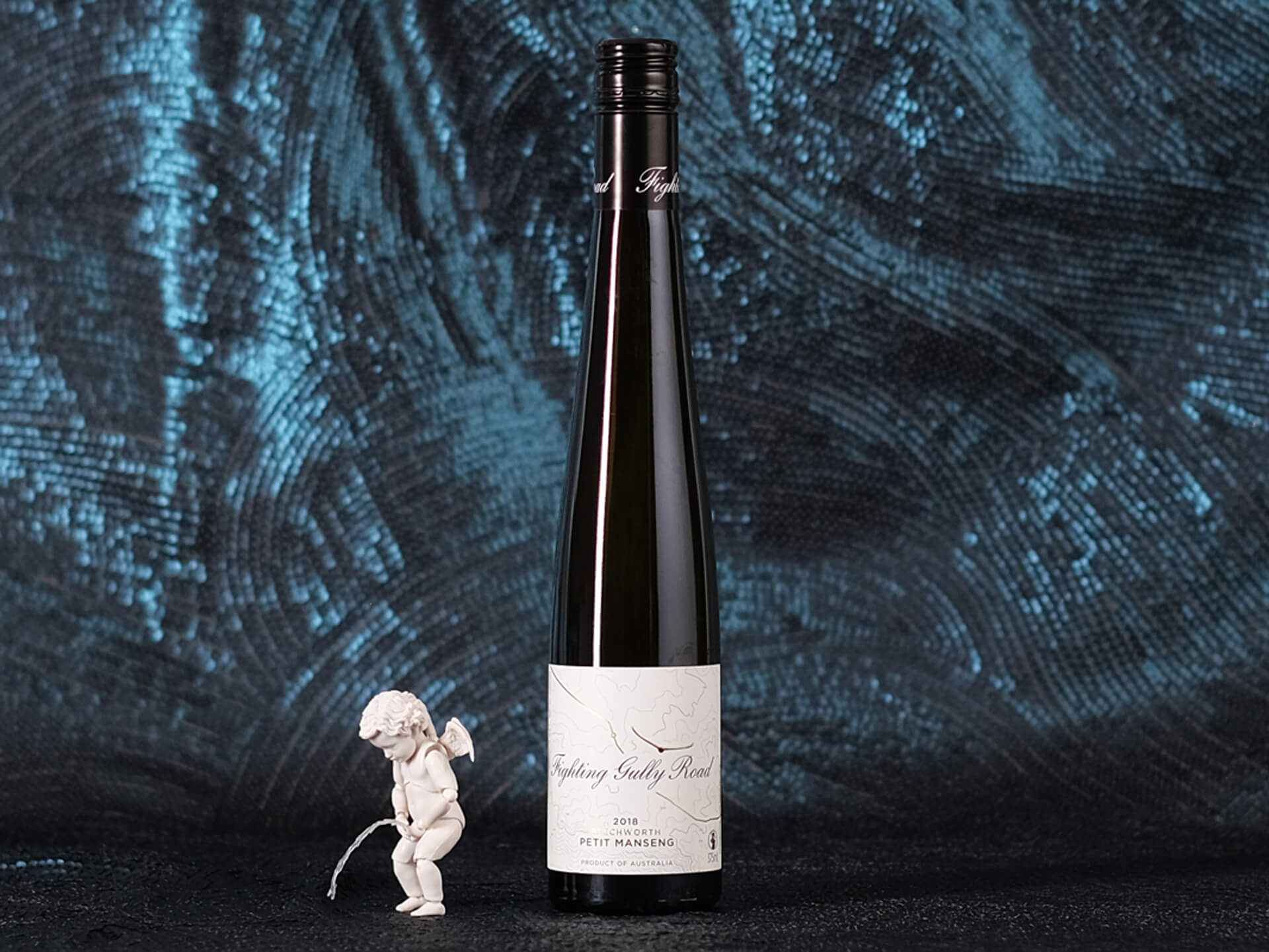Mark Walpole has championed many so-called alternative varieties over the years, with his petit manseng an homage to the sweet wines of Jurançon in France’s south-west. An expressive nose of dried mango and orchard fruits leads to a palate rich with sugar and intensity buoyed and lightened by vigorous acidity and a gentle grip.
Tasting note
Lifted notes of dried mango, poached pear, custard apple and golden raisin notes with a flinty minerality that knits into the impression of old oak and a whiff of smoky sulphide. There’s a decent load of sugar here, but it sits in perfect balance with acidity and gentle grip rising up to greet it, Williams pear notes carrying through the finish. This would be ideal with hard umami-rich cheeses, like gruyere or a cloth-bound cheddar.
Themes of this wine
Petit Manseng
Grown in Gascony, Pacherenc du Vic-Bilh and Jurançon in France’s south-west, petit manseng is largely used to make late harvest sweet wines, though there are dry versions made, too, usually with gros manseng. Petit manseng has small berries, is low yielding and retains high acidity even when harvested late, making it ideal for concentrated and balanced sweet wines. Petit manseng has been in Australia for decades, but in 2020 it was revealed by DNA analysis that much, though not all, of the petit manseng in the country was gros manseng.
Residual sugar/sweetness
A fruit-sweet wine is one where the richness of the fruit gives an impression of sweetness, but it doesn’t actually taste sweet with sugars. Sweet is just that – a wine that has sugar in it and tastes sweet to degrees. A wine can be very sweet or very slightly so, with acidity making the sweetness less apparent. Some wines taste sweet at the start, but finish dry once swallowed. It’s all about how fresh that acid is in relation to the sugar. Wines that are sweet, like some German rieslings or dessert wines, have just had the fermentation stopped at a certain point, so some of the sugar is not converted to alcohol, hence residual sugar.
Beechworth
There’s something stately about the Beechworth wine region, with a sense of history, a sense of establishment that belies its relatively new viticultural status and frugal output. Perhaps it’s the town, with the pomp of its sandy hued stone buildings, the whole Gold Rush spectacle of it. Perhaps it’s the imprint of iconic makers, like Giaconda, Sorrenberg and Castagna. Perhaps it’s a combination. But whatever it is, don’t take this to mean Beechworth is set in its ways. It is a region of extraordinary untapped potential, with the ranks of newer makers swelling and testing the limits.



